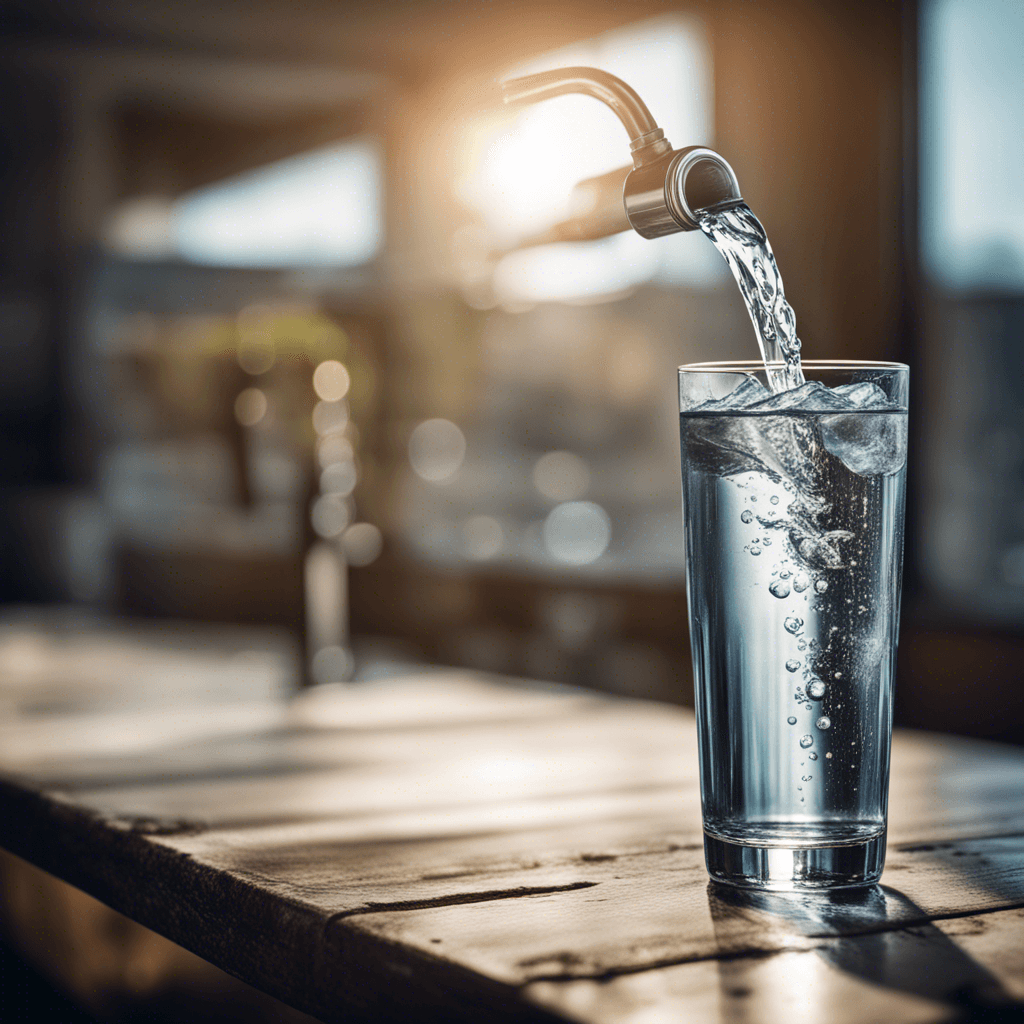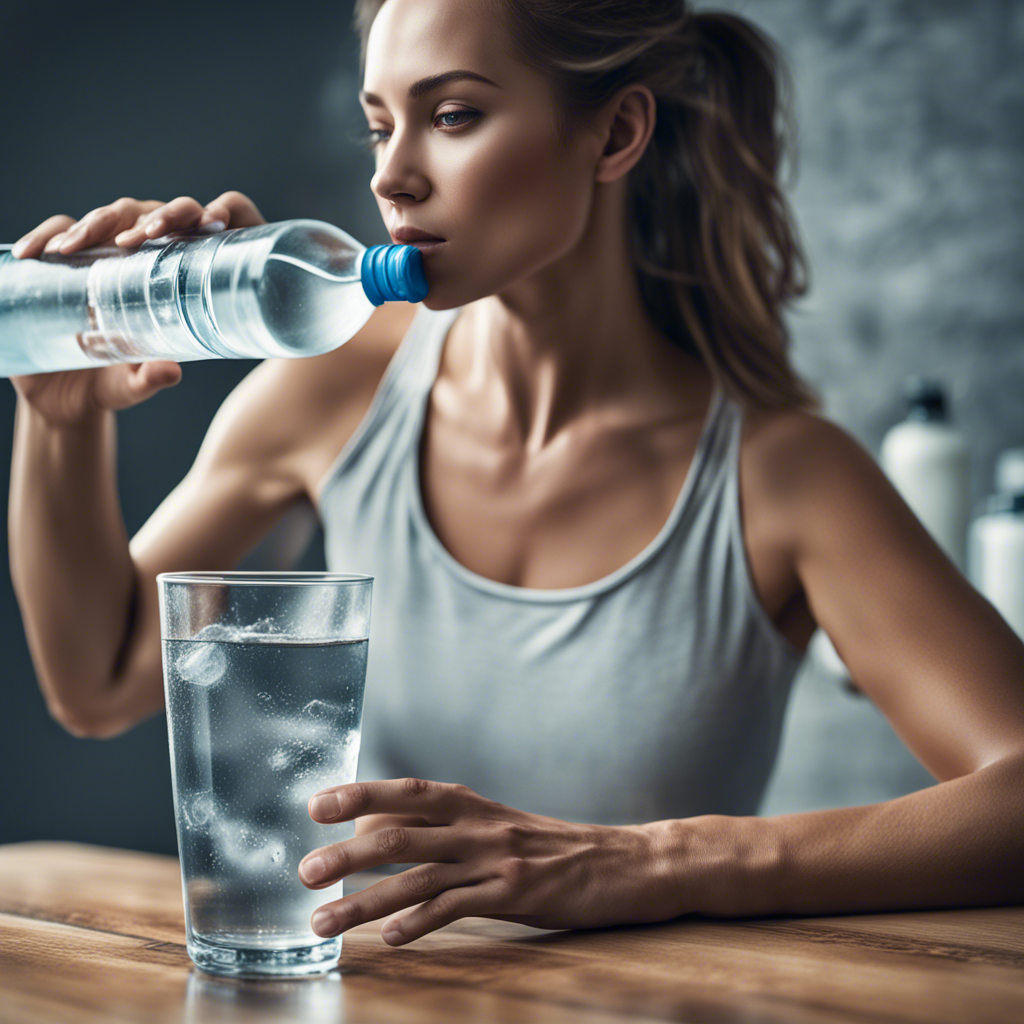Hydration and Health: Why Drinking Water is Key to Your Wellbeing
Water is a fundamental component of life, constituting about 60% of the human body. It plays a crucial role in virtually every biological process, from regulating body temperature to aiding digestion and nutrient absorption. Despite its importance, many people overlook the necessity of proper hydration, often opting for sugary beverages or neglecting fluid intake altogether. This article delves into the significance of hydration, highlighting its myriad health benefits and practical ways to ensure you stay adequately hydrated.

In a world where fast-paced lifestyles often take precedence over personal health, understanding the relationship between hydration and wellbeing is more important than ever. Dehydration can lead to a wide array of health issues, including fatigue, headaches, and impaired cognitive function. On the other hand, maintaining optimal hydration levels can enhance physical performance, boost mental clarity, and improve overall wellness. In this comprehensive exploration, we will unpack the importance of water, the effects of dehydration on wellbeing, and actionable tips for integrating better hydration practices into your daily routine.
The Importance of Water for Health
Water is vital for maintaining homeostasis in the body. It serves as a medium for biochemical reactions, transports nutrients, and facilitates the elimination of waste products. The importance of water cannot be overstated, as it is involved in every bodily function, from the cellular level to the organ systems.
For instance, water aids in thermoregulation, helping to maintain a stable body temperature through perspiration. During physical activity, your body loses water through sweat, which is essential for cooling down. If you fail to replenish these lost fluids, you may experience heat exhaustion or heatstroke, particularly during intense workouts or in hot weather.
Hydration and Metabolism
Another critical aspect of hydration relates to its role in metabolism. Proper hydration improves metabolic processes, including the breakdown of proteins, carbohydrates, and fats. Studies have shown that even mild dehydration can significantly slow down your metabolism, leading to decreased energy levels and increased fatigue.
This relationship between hydration and metabolism is particularly important for those looking to maintain or lose weight. Drinking water before meals can promote feelings of fullness, potentially reducing overall calorie intake. Additionally, water is calorie-free, making it an excellent choice for hydration without the added sugars and calories found in many beverages.
Hydration and Cognitive Function
Beyond physical health, hydration also plays a pivotal role in cognitive function. Research suggests that even slight dehydration can impair mood, memory, and cognitive performance. A study published in the journal *Nutrients* found that individuals who were mildly dehydrated reported increased feelings of anxiety and fatigue, alongside a significant decline in concentration and alertness.
To maintain optimal cognitive function, it is essential to prioritize hydration throughout the day. Simple practices, such as keeping a water bottle at your desk or setting reminders to drink water, can significantly impact your mental clarity and productivity.
Effects of Dehydration on Wellbeing
The effects of dehydration on wellbeing are profound and can manifest in various ways. From physical symptoms to psychological impacts, the consequences of not drinking enough water can be detrimental to your health.
Physically, dehydration can lead to symptoms such as dizziness, dry mouth, and muscle cramps. Severe dehydration can even result in more serious complications, such as kidney stones or urinary tract infections. These health issues highlight the importance of water in maintaining not only hydration but also overall bodily function.
Long-term Consequences
Long-term dehydration can have lasting effects on your health. Chronic dehydration has been linked to conditions such as hypertension, obesity, and even various cardiovascular diseases. Understanding these long-term risks emphasizes the critical need for consistent hydration as part of a healthy lifestyle.
Moreover, many people may not recognize the early signs of dehydration, leading to a gradual decline in health. Regularly monitoring your water intake and being aware of your body’s signals can help prevent dehydration and its associated risks.
Drinking Water Tips for Daily Hydration
Staying hydrated doesn’t have to be a daunting task. By implementing simple strategies, you can easily incorporate more water into your daily routine. Here are some effective drinking water tips to help you stay hydrated.
Set Daily Goals
One practical approach is to set daily hydration goals. The general recommendation is to drink at least eight 8-ounce glasses of water a day, known as the “8×8 rule.” However, individual needs may vary based on factors such as activity level, climate, and overall health. Using a water tracking app can help you monitor your intake and stay accountable.
Infuse Flavor
If plain water doesn’t appeal to you, consider infusing it with fruits, herbs, or vegetables. Adding slices of lemon, cucumber, or mint can enhance the flavor of your water and make it more enjoyable to drink. This not only encourages you to drink more but also adds a variety of nutrients without added sugars or calories.
Incorporate Hydration into Your Routine
Another effective strategy is to integrate water consumption into your daily habits. For example, drink a glass of water first thing in the morning, before meals, and during breaks at work. Associating water intake with routine activities helps create a habit that ensures you stay hydrated throughout the day.
Hydration and Wellness Practices
Incorporating hydration into wellness practices can significantly enhance your overall health. This section will explore how hydration complements other wellness initiatives, including diet, exercise, and mindfulness.
For those engaged in fitness, proper hydration is crucial for optimal performance. Athletes often lose significant amounts of water through sweat, making it essential to replace fluids before, during, and after exercise. Sports drinks can be beneficial for replenishing electrolytes, but plain water should still be your primary source of hydration.
Mindfulness and Hydration
Mindfulness practices can also be enhanced by focusing on hydration. Taking a moment to drink water mindfully allows you to appreciate the act of nourishing your body. This practice can help you recognize your body’s needs more intuitively, making it easier to stay hydrated throughout the day.
Hydration in Diet
In addition to drinking water, you can increase your hydration levels through your diet. Many fruits and vegetables, such as watermelon, cucumbers, and oranges, have a high water content and can contribute to your overall hydration. Including these foods in your meals and snacks can help you meet your hydration goals while providing essential nutrients.

Frequently Asked Questions
1. How much water should I drink daily?
The general recommendation is to consume at least eight 8-ounce glasses of water a day, known as the “8×8 rule.” However, individual needs may vary based on factors like activity level, climate, and overall health. It’s essential to listen to your body and adjust your intake accordingly.
2. What are the signs of dehydration?
Common signs of dehydration include thirst, dry mouth, fatigue, dizziness, and dark yellow urine. If you experience these symptoms, it is crucial to increase your water intake to prevent further complications.
3. Can I drink other beverages instead of water?
While other beverages like herbal teas and natural fruit juices can contribute to your hydration, water should still be your primary source. Sugary drinks and caffeinated beverages may lead to dehydration, so moderation is key.
4. How does hydration affect exercise performance?
Proper hydration is essential for optimal exercise performance. Dehydration can lead to decreased endurance, increased fatigue, and impaired coordination. Drinking water before, during, and after exercise helps maintain performance and prevent heat-related illnesses.
5. Can I be hydrated without drinking water?
Yes, you can be hydrated through the consumption of water-rich foods like fruits and vegetables. Foods such as cucumbers, watermelon, and oranges contain a high percentage of water and can help keep you hydrated.
Conclusion
In conclusion, hydration is a cornerstone of health and wellness that should not be overlooked. The myriad benefits of drinking water extend beyond mere thirst quenching; they play a crucial role in physical performance, cognitive function, and overall wellbeing. By understanding the importance of hydration and implementing practical tips into your daily routine, you can significantly enhance your quality of life.
As we continue to navigate the complexities of modern living, prioritizing hydration is a simple yet effective way to support our health. Whether through mindful water consumption or incorporating hydrating foods into your diet, every effort contributes to a healthier, more vibrant you. Remember, staying hydrated is not just a health tip; it’s an essential practice for a happier, healthier life.
Consider exploring video topics like “The Science of Hydration: How Water Affects Your Body,” “Top 10 Hydrating Foods for Your Diet,” and “Hydration Myths Debunked: What You Need to Know.” These engaging topics can provide further insights into the significance of hydration in our lives.


